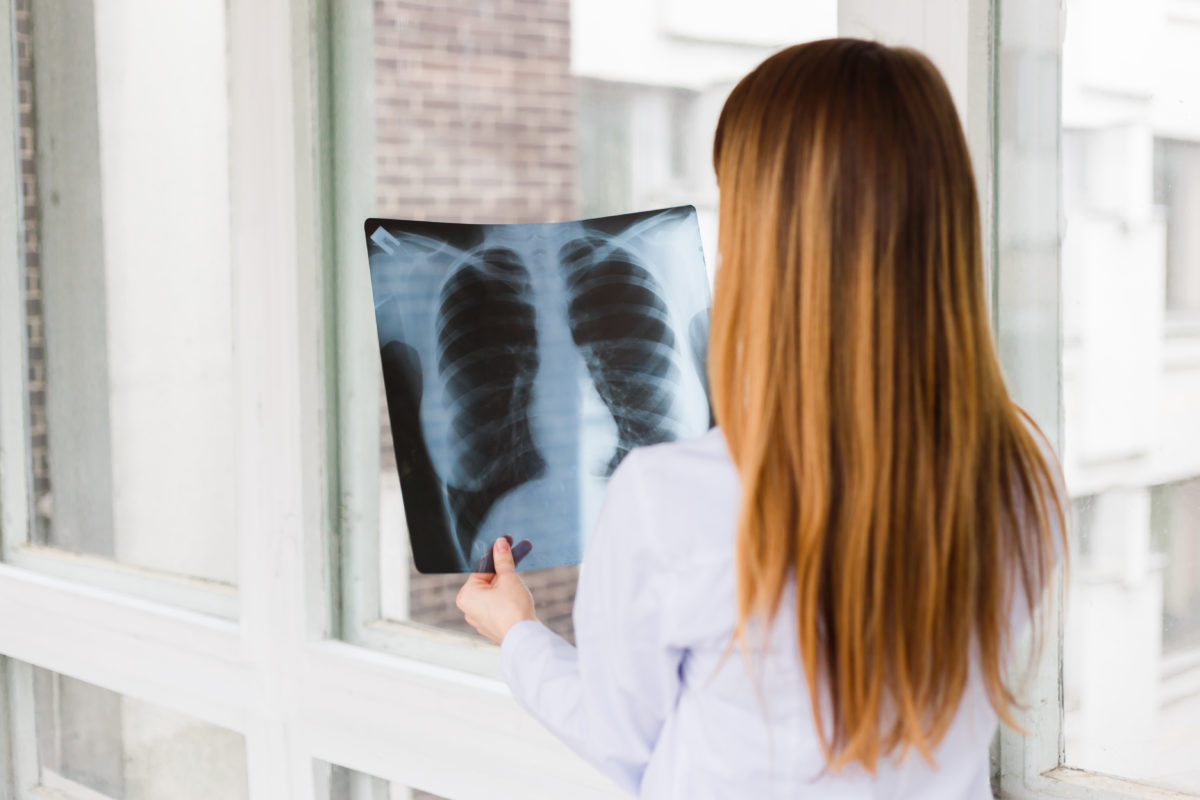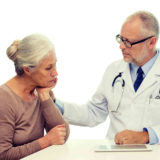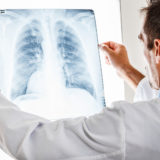Robotic Lung Surgery and Non-Small Cell Lung Cancer

Robotic lung surgery can treat a variety of different cancers. In this article, we focus on one specific cancer: Non-small cell lung cancer.
What is non-small cell lung cancer? Non-small cell lung cancer is one of two major types of lung cancer that affects both smokers and nonsmokers. Each year in the United States, more than 200,000 people are diagnosed with this cancer. This is the most common form of lung cancer.
This cancer is serious, but treatment can possibly stop it from getting worse.
About 80-85 percent of lung cancers are non-small cell lung cancer (NSCLC). There are different subtypes/tumors of NSCLC because they start from different types of lung cells, but they are all treated similarly. Smokers are the most likely to develop this cancer, especially if over the age of 65.
The three different types of tumors from NSCLC are adenocarcinoma, squamous cell (epidermoid), and large cell (undifferentiated).
About 40 percent of lung cancers are adenocarcinomas, which occurs mainly in smokers or former smokers; however, it is also the most common type of cancer in non-smokers. This type starts in the cells in the air sacs that make mucus. It is known to grow slower than other lung cancers.
Squamous cell carcinomas start in the cells that line the inner airways of the lungs; about 25 percent of lung cancers are this type.
Large cell carcinomas are tougher to treat because they grow and spread quickly. This type accounts for 10 percent of lung cancers. It can appear in any part of the lung.
Besides these three subtypes/tumors, NSCLC includes adenosquamous carcinoma and sarcomatoid carcinoma, but they are much less common.
There is no exact cause for this cancer, but many people who have it have smoked, been around smoke, or have been exposed to radon, asbestos, air pollution, radiation, and HIV/AIDS.
Symptoms of this cancer include coughing, chest pain, hoarseness, voice changes, harsh, raspy sounds when breathing, wheezing, weight loss, little appetite, coughing up blood or mucus, and shortness of breath.
If you have NSCLC, you may be able to have it treated with robotic lung surgery. Dr. Peter Mikhail is a robotic lung specialist and surgeon. He can help determine if you’re a candidate for the surgery and will answer all your questions about the surgery. To learn more about the surgery, click Dr. Mikhail’s Tampa Robotic Lung Surgery page or call his office at 727-312-4844 to book an appointment or for more information. Dr. Mikhail is based in New Port Richey, Florida. He treats patients in Tampa and Clearwater.


